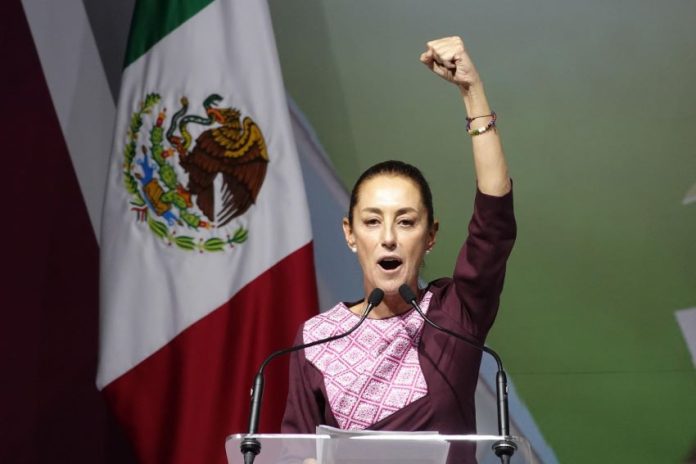Claudia Sheinbaum last Wednesday became the second confirmed candidate for the 2024 presidential election when the ruling Morena party announced she had defeated five men in a polling process to secure its nomination.
The former Mexico City mayor (2018-23), who will also represent the Labor Party and the Ecological Green Party of Mexico, will face off against the Broad Front for Mexico’s Xóchitl Gálvez at the June 2, 2024 election. Senator Gálvez was officially designated as the three-party opposition alliance’s “coordinator” just over a week ago.
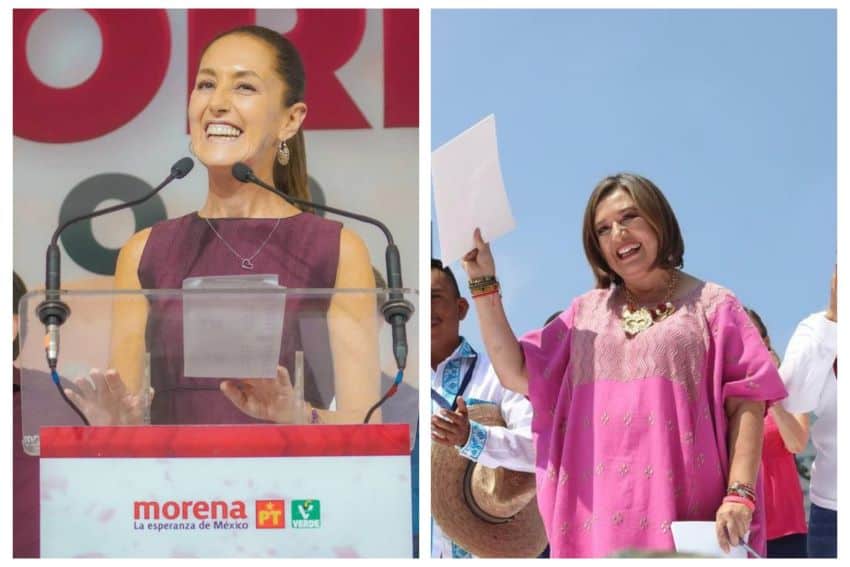
A candidate backed by the Citizens Movement party and one or more independent hopefuls could yet enter the race.
Sheinbaum – a physicist and environmental scientist who was environment minister in Mexico City when Andrés Manuel López Obrador was mayor in the early 2000s – recently spoke with Expansión Política, the politics site of the Expansión news organization, and expressed views on a range of issues she will face if elected as Mexico’s first female president next June.
The 61-year-old Mexico City native gave brief responses to a series of rapid fire questions as well as more elaborate ones on topics including public security, renewable energy and the opportunity presented by the growing nearshoring phenomenon, which she spoke about in significant detail in a separate interview last month.
Her answers give some sense of what a Sheinbaum presidency – a very likely prospect, according to polls – might look like.
Yes or no to tax reform?
“Not now,” said Sheinbaum, who last week received a “baton of command” from President López Obrador, who has ceded the leadership of the “fourth transformation” political project he initiated to Morena’s new standard-bearer.
Yes or no to the army in the streets?
“[Yes] until the National Guard is strengthened.”
Yes or no to help from the United States to combat narcos and crime groups?
“Not if it is invasive.”
Yes or no to jail for ex-presidents?
“It’s not for me to say.”
Would you live in the National Palace (as President López Obrador does)?
“Yes.”
Yes or no to the legalization of marijuana?
“This is complex. I can’t say yes or no at first glance. It’s complicated,” said Sheinbaum without noting that the Supreme Court has directed Mexico’s Congress to legalize the recreational use of the plant.
The best president of Mexico is …?
“Benito Juárez.”
The biggest mistake of former president Vicente Fox (2000-06) was …?
“Betraying democracy.”
The biggest mistake of former president Felipe Calderón (2006-12) was …?
“The war against narcos.”
The biggest mistake of former president Enrique Peña Nieto (2012-18) was …?
“Corruption.”
The biggest mistake of President López Obrador is …?
“Speaking slowly,” said Sheinbaum, who has attended a good number of the president’s lengthy morning press conferences, or mañaneras.
As Senator Gálvez did when she spoke to Expansión Pólitica (covered by Mexico News Daily in late August), Sheinbaum offered longer responses to a range of questions.
Sheinbaum on the use of the military for public security tasks
“There are municipalities in the country where, if you withdraw the army, they’re left with nothing, they’re abandoned,” Morena’s presumptive nominee told Expansión when asked whether the military should be patrolling the streets of Mexico.
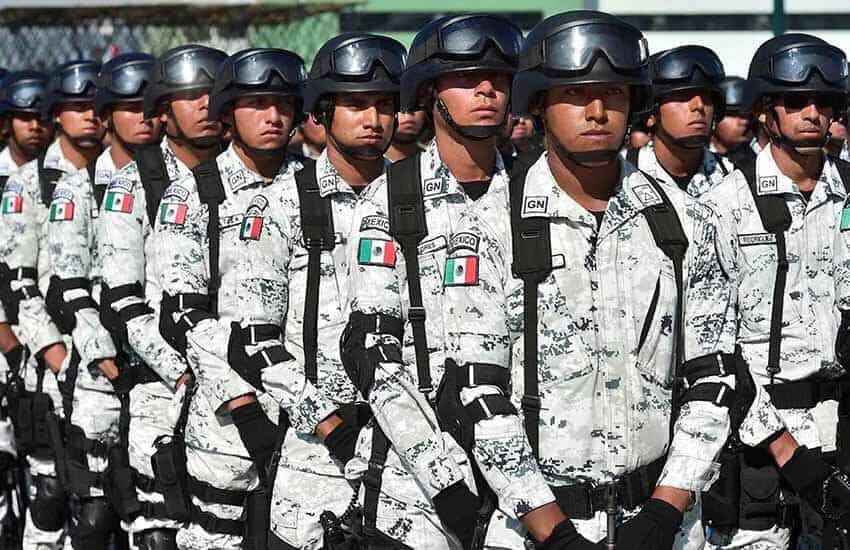
Sheinbaum said that “the ideal thing” would be to have a strong National Guard that is able to relieve the military of its public security duties across Mexico.
As things stand, the National Guard – which was created by the López Obrador administration – needs to strengthen its capacity to patrol all areas of the country, investigate crimes and make arrests, she said.
On what she would do in her first days as president
Sheinbaum said she would put an end to tax evasion if she had the capacity to change something by presidential decree during her first days in office.
She added that if she had one “wish,” she would put an end to poverty.
On the military’s management of customs, ports and airports (an initiative of the current government)
Sheinbaum said she would keep customs facilities, ports and airports under the control of the armed forces “for the time being” as a “significant part” of the problems in those places was related to organized crime.
Having adequate security in customs facilities, ports and airports, and getting rid of any remnant corruption is “important,” she said.
On the future of state oil company Pemex and renewable energy
Asked whether she would “rescue” Pemex – as the López Obrador administration claims to be doing – or create a new state-owned renewable energy company, Sheinbaum responded “both.”
“I believe that energy sovereignty has to do with the base President López Obrador is leaving and accelerating the transition toward renewable sources of energy,” she said.
The “base” Sheinbaum referred to includes a new refinery on the Tabasco coast and a recently acquired one in Texas.
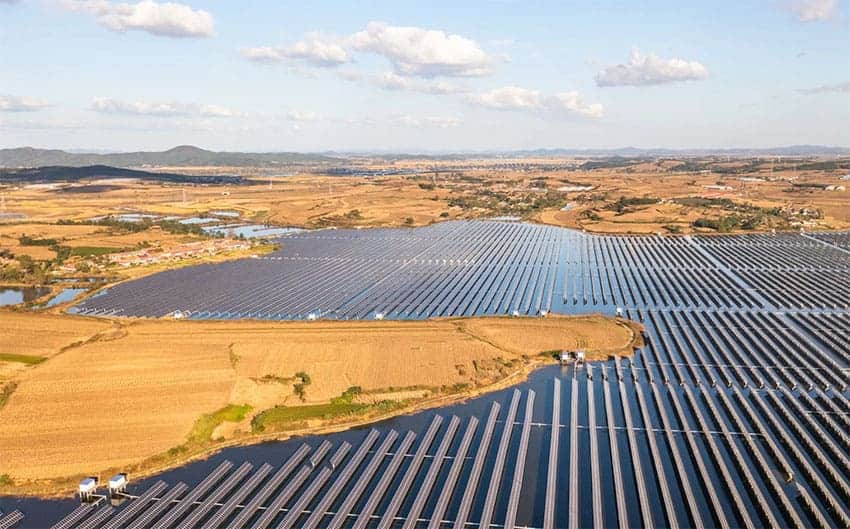
To achieve energy sovereignty a transition to more efficient energy use is also required, the former mayor said.
“It’s not just about having new sources of renewable energy. … The use of energy – from domestic use to commercial use to industrial processes – also [has to] be more efficient,” Sheinbaum said.
“That has to do with structural changes in production processes, and new technologies,” she said.
On tax reform
Sheinbaum said she wasn’t currently contemplating a tax reform, but acknowledged that the issue needs to be studied more.
If tax evasion continues to decline, the government will receive more revenue, she noted.
“At the same time [we need to] facilitate the payment of taxes. I believe that this is something important that would allow more revenue to be collected before [even] thinking about increasing taxes,” Shinbaum said.
She noted that tax revenue from customs is already about one trillion pesos (US $57.6 billion) per year, and asserted that that amount could be substantially increased by eliminating corruption within the customs agency and “strengthening the development of our country through exports and imports.”
On judicial reform
Sheinbaum said she supported López Obrador’s proposal for Supreme Court justices and other judges to be elected “by popular vote.”
“I believe that [would] give a freshness to the judicial power,” she said.
Sheinbaum asserted that many Supreme Court justices favor vested interests over true justice even though they were “elected by Congress.”
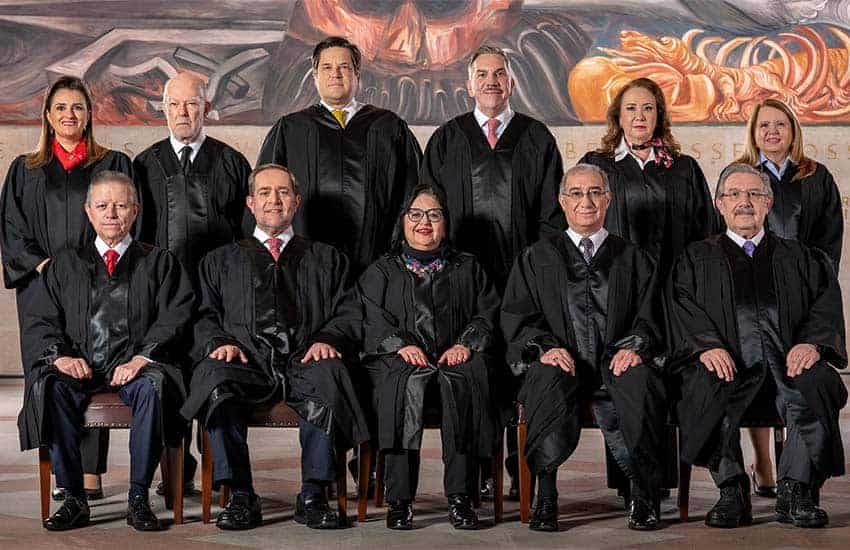
She also said that it is essential that the Federal Judiciary Council sanction judges who have been found to have committed “acts of corruption” or made improper use of their position.
On the role of business in government
Sheinbaum said that Mexico’s private sector is “very important” and that continued investment in the country is importantísimo, or extremely important.
She said that the current government, unlike previous ones, created a necessary “division” between Mexico’s “economic power” – big business, for example – and “political power,” and asserted that that separation must be maintained.
“What we have to think is that private investment also creates wellbeing in the country,” Sheinbaum added.
As president of Mexico, she indicated she would push business to pay higher salaries, saying that the model under which Mexico sold cheap labor to the world “created inequality and poverty.”
(During López Obrador’s presidency, Mexico’s minimum wage has more than doubled, and is currently set at 207 pesos per day, or about US $12, in most of the country.)
On her economic priorities
Sheinbaum said she would “continue working for the well-being” of the Mexican people if she becomes president in late 2024.
“We can speak about economic growth, we can speak about investment, but our [main] indicator always has to be the well-being of Mexicans,” she said.
Within the context of economic policies and goals, sustainability is also an important consideration, Sheinbaum said.
On what she would do to help attract foreign companies to Mexico
Asked how she would take advantage of the nearshoring phenomenon, Sheinbaum said that having the “conditions” to attract more investment is essential.
She was apparently referring to things such as security, a reliable energy supply and the availability of well-educated and trained workers.
“In addition, we have to create the conditions so that these investments generate well-being,” Sheinbaum said.
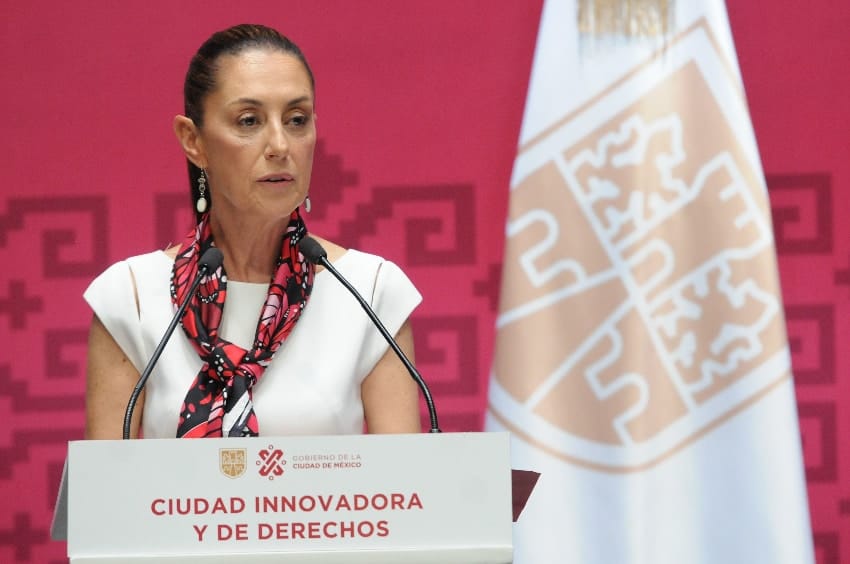
“What am I referring to? Where are the Tesla workers going to live? I asked that question to the governor of Nuevo León. [The answer] isn’t clear,” she said.
“Where are they going to live? What schools are their children going to attend? … Where are the hospitals going to be?” Sheinbaum asked.
“… What we’ve already seen is that investment by itself doesn’t generate well-being,” she said, adding that Mexico has a “great opportunity” to not only attract new investment but also “create quality of life.”
On the United States
Asked to choose between the United States and China, Sheinbaum said that Mexico has an “inseparable” trade relationship with its northern neighbor.
She noted that Mexico and the U.S. are “economically integrated” whereas “there is no free trade agreement with China.”
“… The relationship with China exists and it has to continue existing, but the agreement with the U.S. has to be maintained and strengthened as well,” Sheinbaum said of the USMCA free trade pact, which also includes Canada.
On the López Obrador administration
“President Andrés Manuel López Obrador generated a great change in our country,” Sheinbaum said of her political mentor.
“Mexico is different today than it was up until November 2018. … The president today isn’t just popular because of his social programs, but because he looks to the people of Mexico [for guidance about how to govern]. The people of Mexico identify with their president,” she said.
On why the Mexican people should believe what she says
“Because of my history. You can speak a lot, but it’s your history that defends you,” Sheinbaum said, adding that her background as a public servant, scientist, academic and person is known to the Mexican people.
With reports from Expansión
